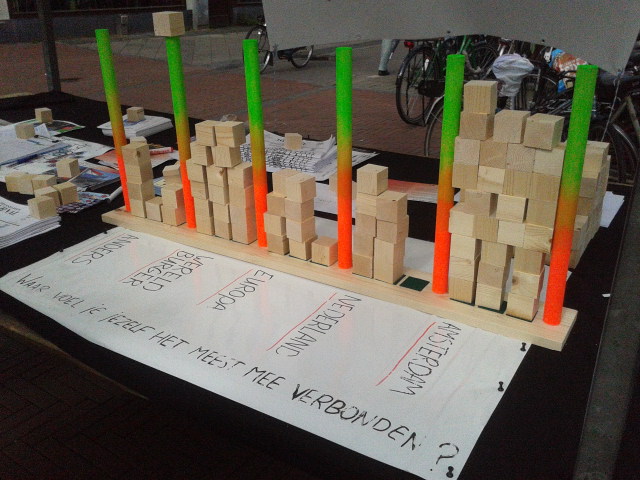Nov 26, 2016
No to the Europe of Walls: Building Together the European Democracy
We intend to act to make sure that on March 25, 2017 a public space on the future of the Union is opened, in the context of a broader constituent process, involving local and regional communities, social stakeholders and civil society organisations, together with the citizens’ representatives at the national and European level. Democratic Europe will survive if its citizens will foster its change. For all these reasons, we commit to involve citizens, territories, and movements in a resounding popular initiative on March 25, 2017.

Transeuropa 2013 – Building walls photo by Eurpean Alternatives
The idea of overcoming the division of Europe between sovereign States was born in the most dramatic moment of the “sleep of Reason”, when most of the continent was occupied by the Nazi Army. This idea was summarised in the “Ventotene Manifesto”, in which the thought of a Federal State is matched with the action for European democracy, peace, and fight against inequality.
The European integration process took shape and substance on March 25, 1957 through gradual common achievements. The latter have realised the original idea of European unity only in part, but have simultaneously extended to new policies and countries. For most Europeans, they represent an irreversible movement, and they have developed in an increasing number of citizens a European political conscience as guarantee of peace, rights, and progress.
This political conscience belongs to us all and we fully identify in the idea that the development of European society and the role of the Union as tool of peace and international cooperation in a globalised world can be guaranteed only through a democratically shared sovereignty. To this original idea are connected values such as human dignity, freedom, equality, solidarity and justice, recognised by the Charter of Fundamental Rights that bounds the Union and the Member States.
In the last ten years, the progressive lack of European solutions to problems such as social exclusion, unemployment – in particular of youth and women –, poverty, and citizens’ safety – together with economic policies that violated the values recognised in the Charter of fundamental rights – has created a concrete and shared dissent, a feeling of frustration towards the European Union project. The financial crisis management (of which mainly national governments have been in charge) and the wrongful economic policies of Member States slowed down the investments in the real economy that are necessary to achieve sustainable development and have exacerbated income inequality. The imposition of austerity measures has produced risks for and impoverishment of the European social model, while inclusive policies to foster the creation of a pluralist society have not been implemented.
National logics prevailed over the search for common interests and the intergovernmental decision making – the one in which governments alone are entrusted with decisions and that lacks substantial democratic legitimacy – had paralysing, unequal, and non-transparent effects. Walls have been built using national egoism as bricks; racism and reactionary movements grew in strength, while the dream of a common European home – that was so close in the night of November 9, 1989, when the Berlin Wall fell – risks now to disintegrate.
The realisation of political unity is the necessary condition to change European policies: to end austerity, to scrap the fiscal compact, to implement European initiatives in the fields of employment, environment and common goods as lever for development, to initiate long term social investments focused in particular on education, culture, training and research, to achieve a “no-carbon” economy together with a harsh fight against climate change, to introduce European loans and mortgages. The realisation of political unity is the necessary condition for the creation of a basic income based on citizenship and a European Civil Service, to establish a European insurance scheme against unemployment, a common Asylum and immigration policy endowed with adequate resources and humanitarian channels allowing a safe arrival and the social integration of those escaping from war, hunger and environmental disasters, a unique voice on foreign policy that overcomes the intergovernmental decision-making, a serious plan on development cooperation and aid and a neighborhood policy to build a Mediterranean area of peace, democracy, co-existence, and free movement.
We are also convinced that it is necessary and urgent to act to allow European citizens to benefit from the value of interdependence and from a shared sovereignty by creating the constitutional conditions to grant them an active role in the decision-making process. We are convinced that it is necessary to take human rights as a starting point, and that the first right is the one to a European democracy where sovereignty belongs to citizens; this, in order to establish a community capable to provide them with those common goods that would otherwise be subjugated to the fight between contrasting national interests.
For all these reasons, we intend to act to make sure that on March 25, 2017 a public space on the future of the Union is opened, in the context of a broader constituent process, involving local and regional communities, social stakeholders and civil society organisations, together with the citizens’ representatives at the national and European level. Democratic Europe will survive if its citizens will foster its change. For all these reasons, we commit to involve citizens, territories, and movements in a resounding popular initiative on March 25, 2017.
LIST OF SIGNATORIES
